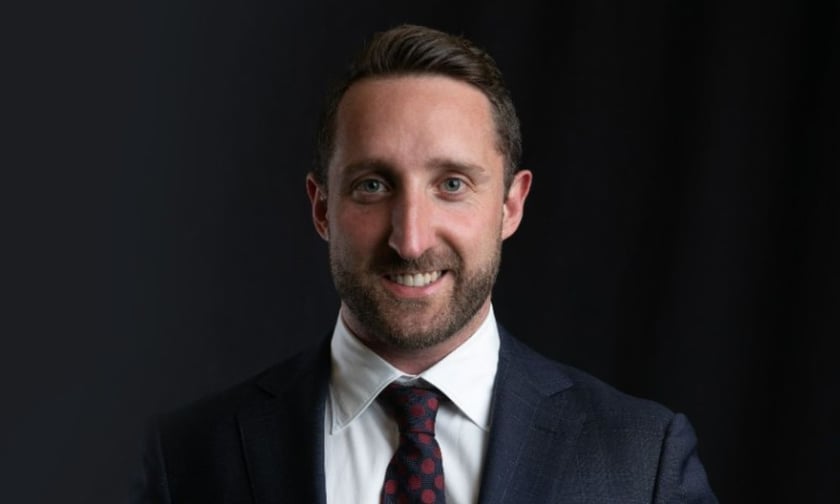

Navigating the financial market presents numerous paths, each leading to distinct destinations.
It offers a robust foundation, enabling him to adeptly handle intricate lending scenarios and structure deals for high-net-worth clients.
Yet, transitioning from banking to broking unveils a broader spectrum of skills beyond technical expertise.
“I think the most critical thing banking has taught me is to always put the customer at the centre of everything you do,” said Hanlon (pictured above), a senior broker at Lending Loop AU.
“I still vividly remember ‘TOFU’ - Take Ownership and Follow Up - from my first role in the bank.”
With brokers facing myriad tasks, compliance hurdles, and conflicting priorities daily, it's easy to lose sight of overarching goals. Hanlon underscores the significance of adhering to the TOFU principle, even in mundane tasks.
“It helps ensure you have excellent customer service, such as keeping clients updated frequently, being proactive and on the front foot with any potential problems, developing deep personal relationships, and fighting for the right outcome for the client when you sometimes, for example, get pushback from credit,” Hanlon said.
“There is a lot of emphasis for new brokers to have mentors for credit and compliance, which I understand, but with close to 20,000 brokers now you’re only going to be able to be successful with excellent service, differentiating yourself, and adding value outside of just writing the client’s loan.”
Still, Hanlon said a good mentor and aggregator should support a broker through all of these functions.
“Lending Loop and NLG have been fantastic so far.”
While Hanlon has the strategy and principles set to become an effective broker, transitioning from banking always entails a paradigm shift.
Banks have different policies and an outcome at one bank can be substantially different at another, even for some of the simpler scenarios.
Furthermore, brokers navigate a diverse array of lender policies and compliance protocols to ensure recommendations align with clients' best interests.
“This can be hours of negotiating pricing with banks, researching lender policies, completing servicing calculators, workshopping scenarios with BDMs across multiple banks, as opposed to just working with one set of policies like you do within a bank,” Hanlon said.
However, it’s this flexibility and the ability to make a wider impact that was so appealing to Hanlon, who relishes the opportunity to assist clients with diverse financial needs spanning home loans, commercial property, SMSF lending, and private funding for developments.
“A broker who can do this effectively is obviously a big win for a client,” Hanlon said. “Aggregator compliance is also very different to bank compliance, so it is getting adjusted to not just satisfying a particular bank’s requirements but also doing a lot more due diligence behind the scenes.”
“Essentially, you are a broker first and loan writer second.”
A challenge for many new brokers can be cashflow, and potentially not seeing any funds come in for many months after commencing. Having the appropriate cash buffers upfront is important.
Building a sound pipeline takes time and clients with pre-approvals don’t purchase property straight away. Then it’s more time before settlement and eventually getting paid.
Fortunately, Hanlon said he has “excellent business mentors” who have taught him how important mindset is and managing expectations.
“Like any new business at the start, you should expect to work hard consistently day in and day out without reward,” Hanlon said. “However, my approach is to do the best for my clients, and eventually the outcomes will come.
“Business is a long-term play and I have seen from past clients that success is not overnight but takes time. If you do an excellent job for your clients, they will refer you to their friends and family, and this is how you build a business over time.”
The main challenge Hanlon said he had faced so far in his four-month journey was readjusting his time management and “juggling so many things at once whilst learning”.
“As a broker you are the jack of all trades – you have to be good at customer acquisition, marketing and branding yourself (without the big reputation of a bank behind you), business development, talking to a steady flow of new clients and understanding their needs, researching credit across multiple banks to make recommendations, writing loan applications, and keeping clients updated to ensure a smooth process… All while the phone is ringing constantly.”
Obviously, a solid work ethic is important – but so is effective time management, said Hanlon.
Hanlon said every morning he writes a list of things to do and groups tasks together and time blocks to complete them at once.
“For example, all my check-in calls to clients within progress applications are completed during a certain window,” he said. “I am getting better at this as the weeks go by.”
What did you learn when you became a broker? Comment below.
